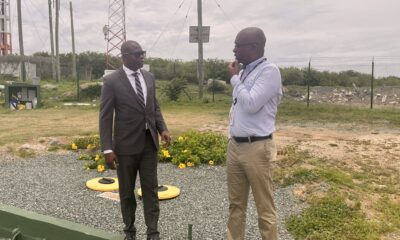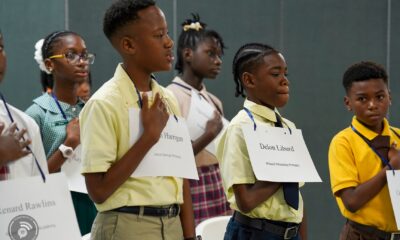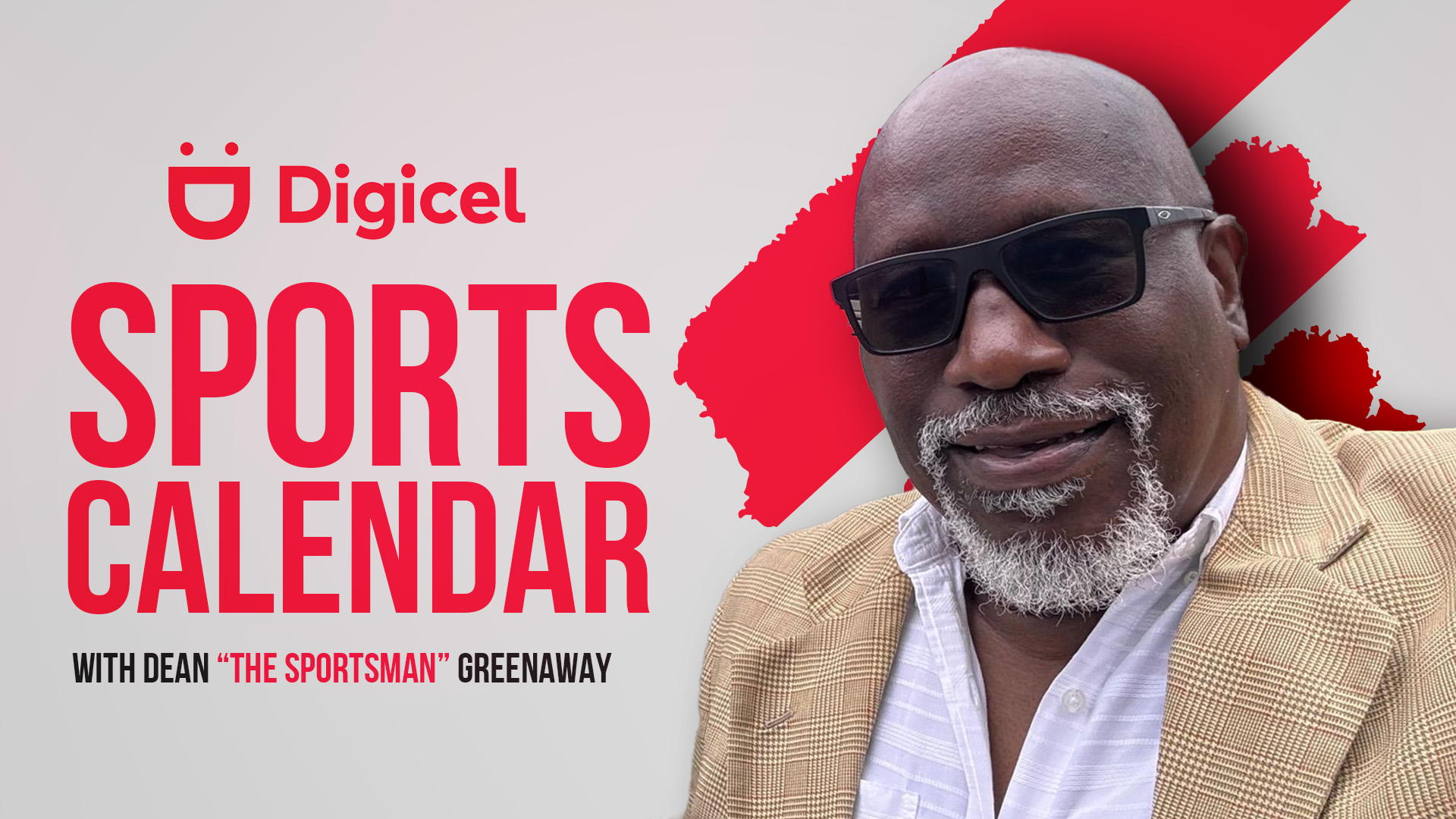International
Virgin Islands Delegation Strengthens Interparliamentary Relations with UK Visit

A delegation from the Virgin Islands (VI) recently embarked on a significant journey to the United Kingdom (UK) to engage in constructive interparliamentary discussions with key individuals within the UK Parliament. Led by the Speaker of the House of Assembly of the Virgin Islands, Honourable Corine George-Massicote, the high-level delegation comprised prominent figures from the VI’s political landscape.
Accompanying Speaker George-Massicote were Minister for Communications and Works, Honourable Kye M. Rymer; Leader of the Opposition, Honourable Ronnie W. Skelton; Attorney General, Honourable Dawn J. Smith; Member for the Third District, Honourable Julian Fraser; and Member for the Eighth District, Honourable Marlon Penn. The delegation was also joined by the Clerk of the House of Assembly, Ms. Phyllis Evans; Public Relations Officer, Mr. Linton V. Leonard; and the Acting Director of the BVI London Office, Ms. Tracy Bradshaw.
The primary objective of the delegation was to strengthen interparliamentary relations and modernize the House of Assembly through collaborative efforts. Throughout their visit, the VI delegation sought to foster stronger ties with their UK counterparts, focusing on enhancing collaboration, exchanging best practices, and promoting mutual understanding in various parliamentary matters. The delegation held a series of crucial meetings at the House of Commons, with the gracious support of the Interparliamentary Relations Office.
The visit commenced with an initial meeting between Speaker George-Massicote and the UK House Speaker, Honourable Lindsay Hoyle. This significant encounter paved the way for in-depth discussions on vital matters concerning parliamentary affairs, governance, and interparliamentary cooperation.
During the interactive meetings, a wide range of topics were covered, including the establishment and implementation of Standing Orders, which form the foundation of parliamentary procedures and ensure an efficient legislative process. Discussions also encompassed the reformation of the VI’s existing Standing Orders to meet the evolving needs of its parliament. The delegation also explored digital advancements in parliamentary operations, with a focus on leveraging technology to improve transparency, accessibility, and efficiency. The essential role of Bill Committees in scrutinizing legislation and facilitating comprehensive deliberations on proposed bills was another key topic of discussion. Additionally, the delegation gained valuable insights into the functioning of the Interparliamentary Standards Authority (IPSA) and the significance of maintaining parliamentary integrity and good governance. The role of the UK’s Governance Office in promoting transparency, accountability, and good governance within the parliamentary framework was also addressed.
The productive exchanges between the VI delegation and their UK counterparts underscored a mutual commitment to bolstering interparliamentary cooperation, sharing expertise, and learning from each other’s experiences. All participants expressed optimism that these discussions would lay the foundation for a strengthened partnership, further promoting the democratic values and principles that unite the VI and the UK.
Upon the delegation’s return to the VI, the insights gained from this mission will be instrumental in furthering the Territory’s parliamentary practices and enhancing governance mechanisms, commencing with the Fifth House of Assembly. The delegation’s visit marks a significant step forward in strengthening interparliamentary relations between the VI and the UK, fostering collaboration and promoting good governance.
International
Cardinal Robert Prevost of Chicago Elected as Pope Leo XIV

– First American Pontiff in Catholic Church History
The College of Cardinals has elected Cardinal Robert Francis Prevost of Chicago as the 267th pope of the Roman Catholic Church. He will be known as Pope Leo XIV, marking the first time an American has ascended to the papacy in the Church’s two-millennia history.
The announcement came at 6:07 p.m. local time, when white smoke billowed from the chimney of the Sistine Chapel, signaling the successful conclusion of the conclave’s fourth ballot. Shortly thereafter, Cardinal Protodeacon Dominique Mamberti proclaimed the traditional “Habemus Papam” from the balcony of St. Peter’s Basilica.
Appearing before a jubilant crowd in St. Peter’s Square, Pope Leo XIV offered his first apostolic blessing and addressed the faithful with a message of peace: “Peace be with all of you! I want this salute of peace to enter your heart, reach your families, and all people, and all the peoples, and the whole world.”
Born in Chicago in 1955, Robert Prevost is a member of the Order of St. Augustine. He spent decades serving as a missionary in Peru, where he taught theology and held various administrative roles within the Church. In 2023, he was appointed to lead the Vatican’s Congregation for Bishops, a position that placed him at the heart of the Church’s global leadership.
Pope Leo XIV’s election is seen as a unifying choice amid ideological divisions within the Church. His background reflects a commitment to inclusivity and dialogue, values that align with the synodal approach emphasized by his predecessor, Pope Francis. In his initial remarks, Pope Leo XIV expressed a desire for a Church that is “engaged with the modern world and always looking for peace, charity and being close to people, especially those who are suffering.”
The new pontiff faces a range of pressing challenges, including fostering unity within a polarized Church, addressing global conflicts, and continuing efforts to reform Church governance and address past abuses. His leadership will be closely watched as he navigates these complex issues.
Pope Leo XIV’s election has been met with congratulations from leaders around the world. U.S. President Donald Trump lauded the historic moment, stating, “It is such an honor to realize that he is the first American Pope. What excitement, and what a Great Honor for our … .”
As the Catholic Church enters this new chapter under Pope Leo XIV’s guidance, the faithful and observers alike look forward to the direction he will set for the global community of believers.
Business
Caribbean Shipping Secures Exemption from U.S. Port Fees on Chinese-Built Vessels
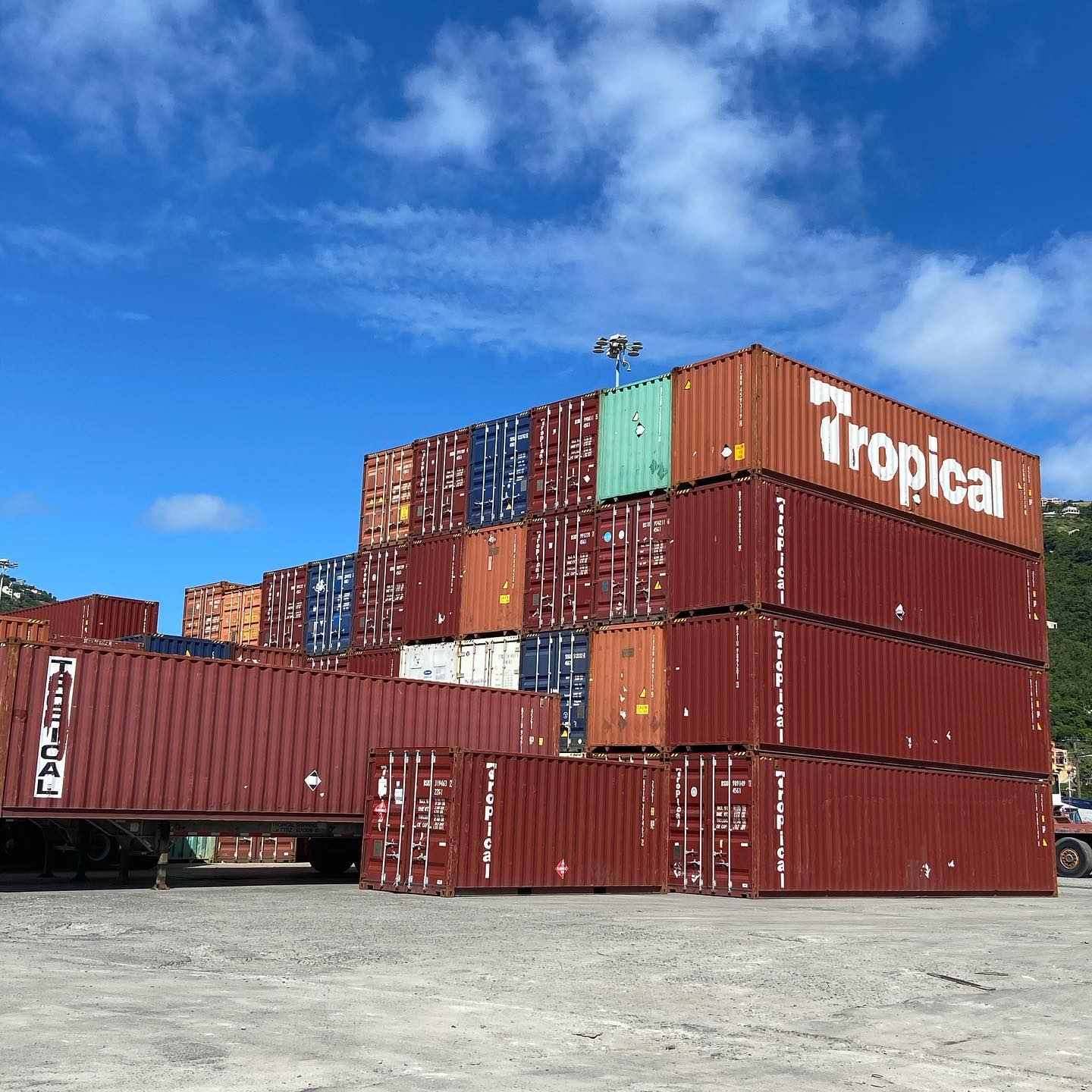
The Office of the United States Trade Representative (USTR) has exempted Caribbean shipping routes from newly proposed port fees on Chinese-built vessels. This decision follows concerted advocacy by the Caribbean Private Sector Organisation (CPSO) and regional stakeholders, who warned that the fees could have devastating economic consequences for the Caribbean.
The USTR’s initial proposal aimed to impose fees of up to $1.5 million per port call on vessels constructed in China, as part of a broader strategy to counter China’s dominance in global shipbuilding and bolster the U.S. maritime industry. However, the policy faced immediate backlash from Caribbean nations, where a significant portion of shipping relies on Chinese-built vessels.
Dr. Patrick Antoine, CEO and Technical Director of the CPSO, testified at a USTR public hearing, emphasizing that over 90% of CARICOM’s trade in goods depends on maritime transport. He warned that the proposed fees could lead to a 60% increase in shipping costs to and from the Caribbean, severely impacting economies where more than 50% of the ships are Chinese-built.
The potential repercussions were particularly alarming for smaller Caribbean states like Antigua and Barbuda, Dominica, Grenada, St. Lucia, and St. Vincent and the Grenadines, which rely heavily on short-sea shipping routes serviced by Chinese-built vessels. Prime Minister Gaston Browne of Antigua and Barbuda expressed concern that shipping a container could increase by $3,000 to $4,000, leading to an 8–10% rise in consumer prices and pushing inflation rates to potentially 12–14%.
In response to these concerns, the USTR revised its policy to exempt ships operating between U.S. domestic routes, the Caribbean, U.S. territories, and Great Lakes ports from the new fees. This adjustment aims to prevent inflation, supply chain disruptions, and surging trade costs in the region.
The exemption has been met with relief across the Caribbean. Dr. Antoine expressed gratitude to the USTR for recognizing the unique challenges faced by Caribbean economies and for taking steps to safeguard regional trade stability.
While the exemption provides immediate relief, regional leaders and industry stakeholders continue to monitor the situation closely. They advocate for long-term strategies to enhance the resilience of Caribbean supply chains and reduce dependency on external factors that could disrupt trade.
Business
BVI Braces for Ripple Effects as U.S. Stock Market Sheds $5 Trillion
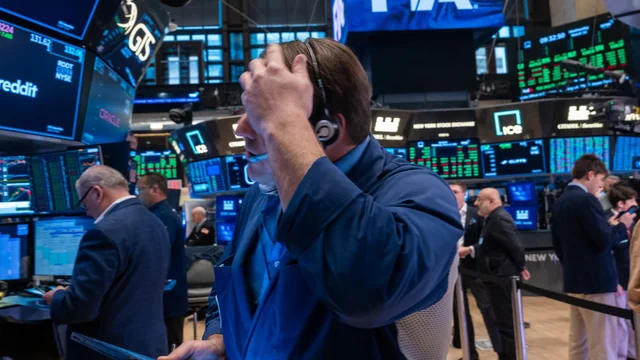
In just three weeks, the U.S. stock market has lost a staggering $5 trillion in value, a downturn that could have significant implications for the British Virgin Islands (BVI), where the U.S. dollar is the official currency. As economic uncertainty grips the global financial system, concerns are mounting over how this sharp decline might impact the BVI’s economy, particularly in the areas of tourism, offshore financial services, and overall consumer confidence.
With the U.S. being the primary source of visitors to the BVI, any financial squeeze on American households could lead to a reduction in travel plans. A weaker U.S. stock market often means tighter budgets for vacationers, which could result in lower visitor numbers, reduced hotel bookings, and fewer yacht charters—critical sectors for the territory’s economy.
As one of the Caribbean’s leading offshore financial hubs, the BVI is deeply connected to global markets. A drop in stock values can shake investor confidence, potentially leading to slower financial transactions, reduced incorporations, and a cautious approach from high-net-worth individuals who use BVI-based structures for wealth management.
With the BVI using the U.S. dollar, economic shocks in the U.S. can quickly affect the cost of goods and services in the territory. A weaker U.S. market could lead to fluctuations in inflation, making imports more expensive. For a territory that relies heavily on imported goods—from food supplies to construction materials—this could put additional pressure on businesses and consumers.
The BVI government will likely keep a close watch on these developments, as a prolonged U.S. market downturn could impact tax revenues, business activity, and overall economic confidence. Policymakers may need to explore ways to strengthen economic resilience, whether through increased regional trade, diversification efforts, or measures to support local businesses in uncertain times.
While the full impact of this financial slide remains to be seen, one thing is certain: the BVI, like many other U.S. dollar-dependent economies, is paying close attention to Wall Street’s turbulence and preparing for potential economic headwinds.
-

 Crime/Police2 weeks ago
Crime/Police2 weeks agoManhunt Underway for ‘Small Brent’ in Nyron Erickson Murder Case
-

 Local News2 weeks ago
Local News2 weeks agoControversial 3-Point Call Proven a 4, But Result Stands: Team USVI Withdraws from Third-Place Match
-
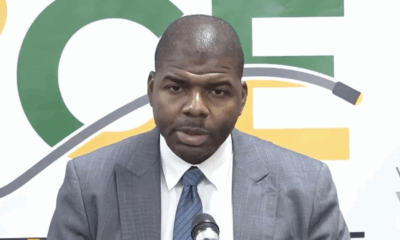
 Uncategorized2 weeks ago
Uncategorized2 weeks agoFestival Costs Outpace Revenue Despite $1M Intake, Says Premier
-

 Entertainment1 week ago
Entertainment1 week agoFive Students to Compete in Mr. & Miss HLSCC Pageant on June 1
-
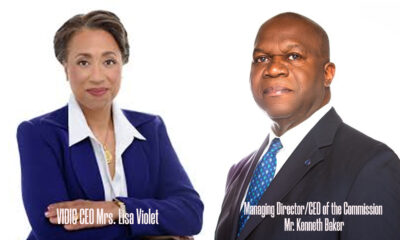
 Uncategorized4 hours ago
Uncategorized4 hours agoBritish Virgin Islands Regulators Move to Wind Down Bank of Asia (BVI) Limited
-

 Uncategorized4 days ago
Uncategorized4 days agoChantel Malone Leaps to First Place Amid Headwinds at Tucson Elite Classic:
-
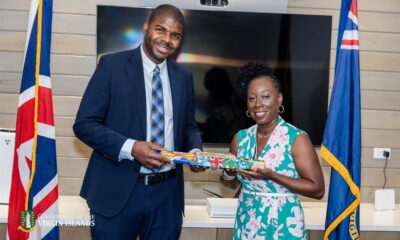
 Local News2 weeks ago
Local News2 weeks agoKing’s Baton Officially Handed Over to Premier in Ceremony Ahead of 2026 Games
-

 Crime/Police2 weeks ago
Crime/Police2 weeks agoDeputy Commissioner Confirms 17 Gun Robberies, Two Fatalities in 2025




